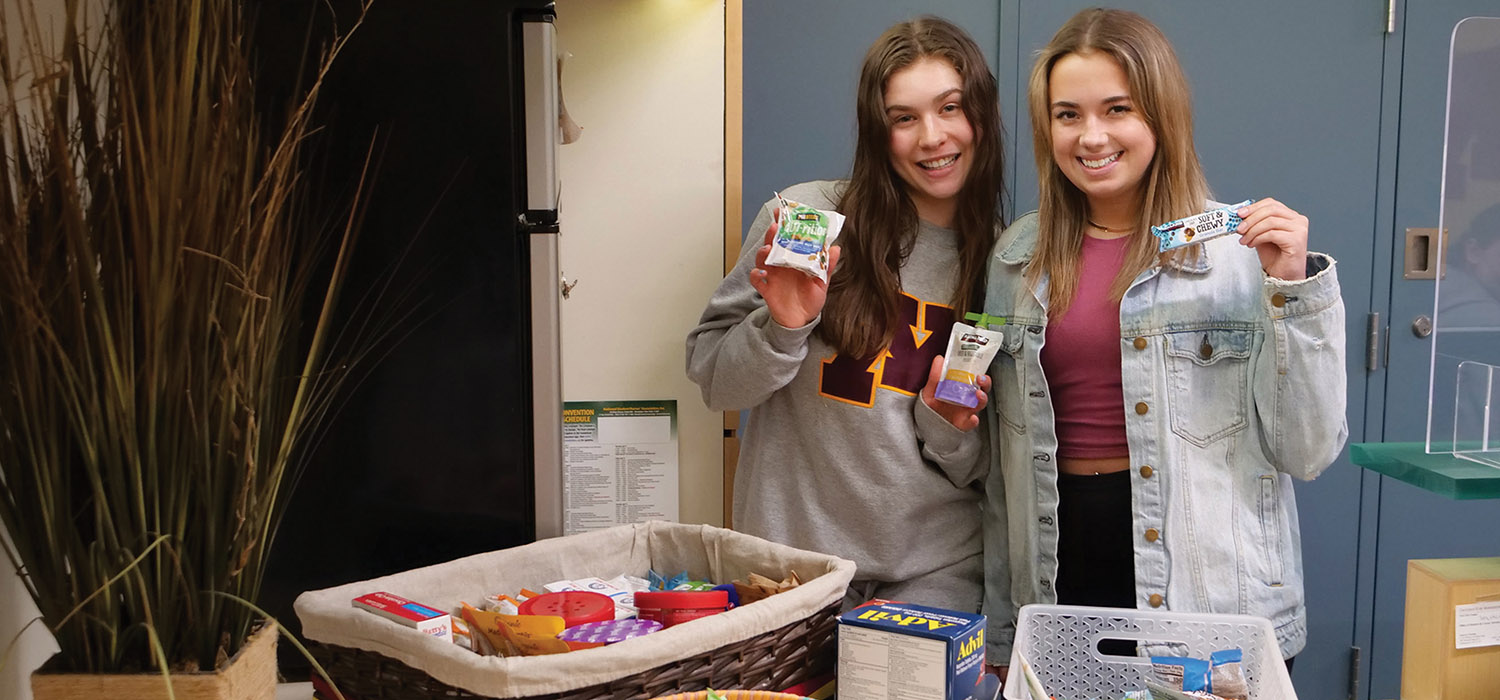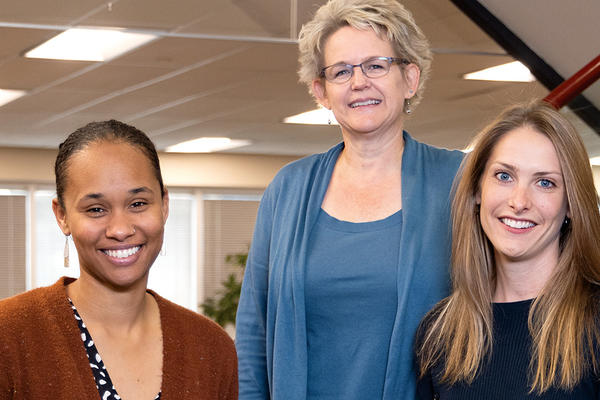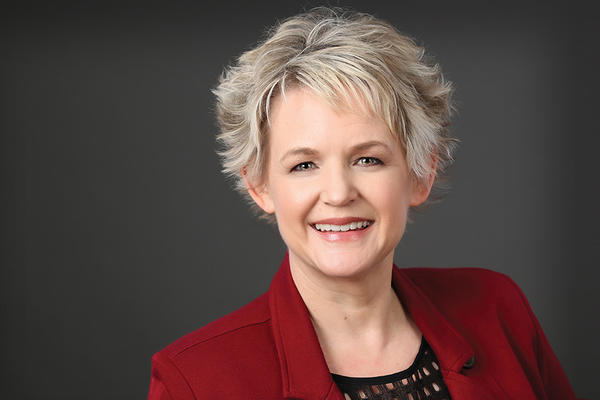Ensuring students thrive on campus
Care Corner launches to provide students support for their success
May 3, 2023

Above: Students pick up snacks from the Care Corner in the Office of Student and Career Advancement Services.
As students returned to on-campus learning, Kathryn Schwartz Eckhardt, director of the Office of Student and Career Advancement Services (OSCAS), noticed that students weren’t visiting the OSCAS office with the same frequency they did prior to COVID.
“They were using virtual advising so some students didn’t know that we were here or where our location was,” says Schwartz Eckhardt.
In an effort to encourage more visits to the office, as well as encourage students to see the OSCAS office as a source of support, Schwartz Eckhardt launched the Care Corner. It offers snacks, like granola bars and beef jerky, as well as on-the-go meal options like mac and cheese cups and acai bowls.
“The Care Corner is there to make sure students have something to eat if they come to campus and realize they forgot their lunch, need a little extra help stretching their food budget or just need a granola bar to give them the energy they need to take an upcoming exam,” says Schwartz Eckhardt.
The goal of the OSCAS Care Corner is to give students a reason to want to come to the office and to show them that the office is a caring space designed to support their success. “Sometimes the most needed support is providing guidance on course selection or other things most typically associated with a student services office. Other times, the most meaningful support we can provide is a yogurt or granola bar to help them focus and get through a busy day on campus,” says Schwartz Eckhardt.
Care Corner continues to evolve to support students
Since launching, the Care Corner has grown to also include items like ibuprofen and period products, as well as scrubs. The scrubs came from the Master of Nursing class that graduated in December, and there are plans to collect scrubs on an ongoing basis from graduating seniors. “From sustainability to a financial perspective, there are so many reasons to do this,” says Schwartz Eckhardt. They will soon be purchasing hijabs for the Care Corner as well.
While the scrubs are donated, the food and other items at the Care Corner are supported through contributed funds. The entire OSCAS team helps support the operations of the Care Corner with everyone restocking the area as supplies run low and greeting students as they come in. As word has spread about the Care Corner, usage continues to tick up, and Care Corners have sprouted up across health sciences schools at the University.
“Our hope is students see our office as a place that they associate with positive things and that they will come to us without hesitation when need us,” says Schwartz Eckhardt.
Mental Health Advocates
Schwartz Eckhardt developed the Care Corner as she completed the Mental Health Advocate training through Boynton Health. Mental Health Advocates are staff and faculty volunteers who are part of a community working to implement public health strategies to promote student mental health. About a dozen School of Nursing faculty and staff have completed the training.
“Our school really cares about students and their wellbeing,” says Schwartz Eckhardt. “We have a good faculty and staff participation, and now we are trying to mobilize.”
Schwartz Eckhardt says that when students are struggling, OSCAS is one of the first places they need to go to receive support. “So how students feel about our office is really important. If they see us as cold and inaccessible, it may make it harder for them to address issues of wellness on campus,” says Schwartz Eckhardt. “We want our students to know we care about them.”
The feedback she’s heard from students indicates that the Care Corner is achieving that goal, as they’ve told her it makes them feel like the school cares about them and that it makes OSCAS feel more welcoming and supportive.
“We have a lot of procedures and processes in place to support our students’ academic success but we don’t have a lot in place to support them more holistically as a person to thrive on this campus,” says Schwartz Eckhardt. “This is small step to more wrap around services.”


